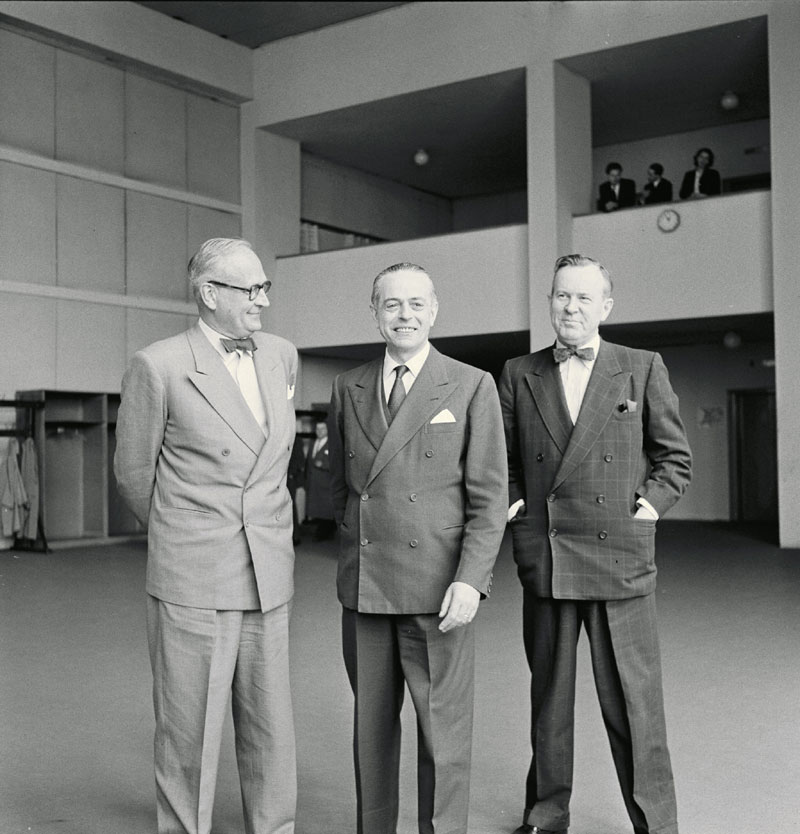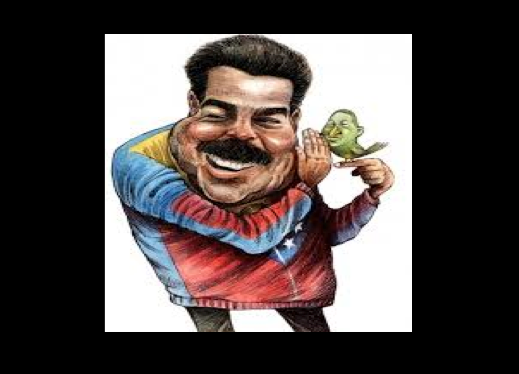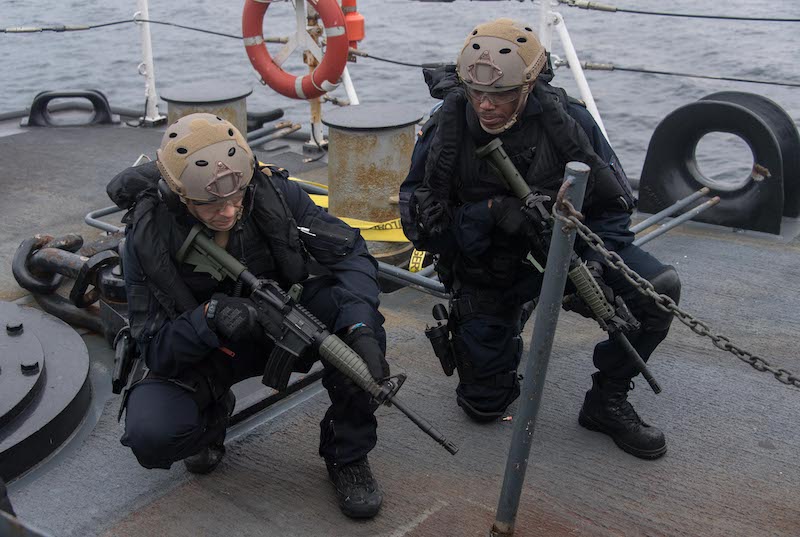This is the story of the Three Wise Men, and how they changed the world.
Most of you are envisioning three majestic kings, dressed in regal robes, arriving from the east to present the baby Jesus with gifts of gold, frankincense and myrrh. It is a traditional biblical story told countless times during the holiday season, and one that is familiar to much of the western world. These classic stories are supposed to teach us lessons: they are meant to inspire, to bring hope, and to encourage us to imagine a world shaped by the values and morals that we deem universally desirable. There is another December story, however, less familiar and not as magical, that carries with it its own important messages and lessons. This story is also about Three Wise Men, and their cooperative vision that changed the world.
60 years ago today, Three Wise Men published a report that would fundamentally change the NATO Alliance, its role in international security, and the way that we view cooperation altogether. These wise men were Canada’s Lester B. Pearson, Italy’s Gaetano Martino, and Norway’s Halvard Lange. In 1956, these foreign ministers came together to address what they agreed was a problematic gap in NATO’s institutional capabilities, and in doing so made NATO much more than a military alliance.
By 1956, NATO had already established itself as a powerful military force that would stand against the Soviet Union during the Cold War. Cooperation, it seemed, could not have manifested itself any more clearly, as member states unanimously denounced communism and Soviet aggression, and promised to defend the shared interests of the Alliance should any member state become the victim of an attack. At the same time, however, NATO found its cooperative framework challenged by a lack of agreement on an appropriate response to the Suez affair. Members found themselves at odds with one another over the fragile situation unfolding in Egypt, and the Three Wise Men (formally known as the Committee of Three) recognized this disagreement with a sense of unease. They understood that cooperation is a notion that extends beyond a military context, and realized this truth with the clarity and conviction that would allow them to address this gap in the NATO Alliance’s cooperative objectives.
The Committee of Non-Military Cooperation’s main task upon its establishment in 1956 was to “advise the Council on ways and means to improve and extend NATO cooperation in non-military fields and to develop greater unity within the Atlantic Community”. Pearson, Martino and Lange took this mandate seriously, and developed a series of recommendations that they viewed as critical to achieving these goals. Most significantly, the recommendations included the peaceful settlement of inter-member disputes, and called on members to commit to regular political consultation with one another. These principles had an important impact on the nature of the Alliance itself, as political consultation would later become an important institutional pillar of the NATO framework. Additionally, the report implored members to increase cooperative efforts in key non-military areas including economics, science, technology, information-sharing, and culture.
The immediate impacts of the report were somewhat mixed, but the positive progress initiated by the Committee’s recommendations in some key areas were undeniable. One of the most significant results was the implementation of the NATO Science Program, launched the same year that the report was approved by Council. The Science Program would later give rise to one of NATO’s most significant non-military policy initiatives to date – the Science for Peace and Security Programme (SPS).
The distinctly Canadian part of this story is of particular interest when considering the Committee’s impact on the NATO Alliance, and international politics more broadly. The diplomatic achievements and political legacy of Canada’s Lester B. Pearson also had a significant impact on Canadian national identity
During the 62nd General Assembly of the Atlantic Treaty Association (ATA), Julie Lindhout, President of the NATO Association of Canada, presented her research on Three Wise Men, with special emphasis on Canada’s contribution to this distinguished group. She noted the distinct shift in NATO’s institutional function, from purely a military alliance, to a more complex framework that emphasised cooperation across a diverse range of areas and issues both military and non-military. She noted the importance of the political consultation recommendation set forth by the Committee, and the long term benefits that implementing this recommendation has had on Alliance relations and effectiveness since.
We see these values – cooperation, political consultation, peaceful settlement of disputes, non-violence – deeply embedded in the diplomatic style and political character of Pearson himself, as his lengthy political career that followed his participation in the Committee would clearly illustrate. Indeed, Pearson played a crucial role in the successful settlement of the Suez crisis when he proposed the introduction of a UN Peacekeeping force – work that earned him the Nobel Peace Prize in 1957. Looking at Pearson’s political career more broadly, it would be inaccurate to say that Pearson’s individual efforts and commitments were calculated moves for political gains. In fact, Pearson’s core values and political mission appear to have remained consistent and unwavering over the course of his career, even when these values made him unpopular. Take, for example, his work as President of the UN General Assembly in 1952, when his efforts to help end the Korean War were especially displeasing to the Americans. Still, Pearson made no apologies for remaining true to the values and principles which grounded him politically, and continued to champion these values throughout his career. Today, many Canadians still view Canada’s national identity as one of inclusivity and cooperation, represented by specific efforts towards international Peacekeeping during Pearson’s years as Prime Minister.
The reach of Pearsonian values was not limited to Canada, however. It became clear through his work with the UN, NATO, and the Canadian Federal Government that the work championed by Pearson held value that was universally important and desirable. As Julie Lindhout highlighted in her presentation to the ATA General Assembly, Pearson was so valuable to both international relations and the Canadian federal government that the two entities were competing for his undivided attention. As summarized by Lindhout,
“In the biographical dictionary of Secretaries-General of International Organizations, I found the bio of Lord Ismay, the first Secretary General of NATO. In it, I found the statement that Lord Ismay was the third choice and had only reluctantly accepted the position in order to save the organization further search. The first choice was Sir Oliver Franks, British Ambassador to the United States, who had turned down the position, and the second choice was Lester Pearson, but the Canadian government had refused to make him available.”
Lindhout continued, noting that this pivotal point in NATO history indicated clearly the respect and trust that Pearson’s political peers had for him and his work. It is noteworthy that, had Pearson not been as highly valued by St. Laurent, Canada’s Prime Minister of the day, the first Secretary General of NATO could have been a Canadian.
The 62nd ATA General Assembly was extremely fortunate to welcome Lester B. Pearson’s own granddaughter, Hilary Pearson, to give her personal account of the Pearsonian values that became her grandfather’s Canadian legacy. She highlighted his skillful diplomacy, and his incredible ability to focus the Committee on its cooperative goals. Ms. Pearson also mentioned the importance of Pearson’s unwavering patience and gentle temperament while he was serving on the committee during a period of especially fragile international politics. She noted that Pearson recognized the crucial need for the NATO Alliance to be able to adapt to changing political environments, and to “find something other than fear” that would draw members together on pressing issues, military and non-military, that required close collaboration. Beyond this, his unwavering ability to get along with seemingly anyone he met, and his close friendship with Norway’s Halvard Lange, were assets that proved extremely beneficial in facilitating the progress made by the Committee’s recommendations.
Ms. Pearson’s reflections on the legacy of her grandfather highlighted the values and moral standards that remain just as important today as ever before. As the world faces new challenges of epic proportions, threats and conflicts that constantly evolve, and an international political environment characterized by increasing divisiveness, considering Pearson and his life’s work reminds us of an important lesson. It reminds us that in the face of hatred, conflict, distrust and exclusivity, cooperation and efforts towards peaceful resolution become more important than ever. It reminds us that despite obstacles that stand in the way of these goals, there are ways to conquer them if we remember that we have more in common than just our fears. It reminds us that we must come together to face these challenges rather than simply bracing for an impact alone. Most of all, it reminds us to speak out against the injustices that we see in this world – together – because many voices are louder than one.
Photo: From left to right Mr. Lange, Gaetano Martino and Lester B. Pearson, dubbed the “Three Wise Men”, constituting the “Committee of Three”, from “NATO Declassified”, NATO Public Dimplomacy Division 2009, via Wikimedia.
Disclaimer: Any views or opinions expressed in articles are solely those of the authors and do not necessarily represent the views of the NATO Association of Canada.




